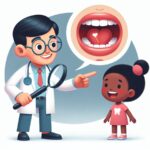Rickets is a condition that strikes a chord of concern in any new parent’s heart. It’s essential to grasp what rickets entails, how it can affect your bundle of joy, and the steps you can take to shield them from this ailment. In this expansive guide, we’ll delve deep into the world of rickets, providing you with the knowledge and tools you need to ensure your child’s healthy growth and development.
What is Rickets?
Rickets is a skeletal disorder characterized by weakened and softened bones in children, primarily due to a prolonged deficiency of vitamin D, calcium, or phosphate. These nutrients are crucial for the development of strong, healthy bones. Without them, children’s bones can become soft, leading to deformities and growth issues. The primary marker of rickets is not just in bone weakness but in the potential long-term effects it can have on a child’s physical growth and development.
For a deeper understanding, you can refer to this detailed guide on rickets from the Mayo Clinic, which offers comprehensive insights into the condition.
What Causes Rickets in Children?
The leading cause of rickets among children is a deficiency in vitamin D, which is vital for the absorption of calcium and phosphate in the body. While our bodies can produce vitamin D when exposed to sunlight, factors such as limited sun exposure, the use of sunblock, living in high latitudes, or having darker skin can reduce its synthesis. Besides, certain diets and health conditions may impair the absorption or processing of vitamin D and other related nutrients, elevating the risk of developing rickets.
It’s also pertinent to note that exclusively breastfed infants might require vitamin D supplementation, especially if they have minimal sun exposure or if the mother has vitamin D deficiency. For more information on nutritional needs, check out liquid vitamin D supplementation.
Recognizing the Symptoms of Rickets
Identifying rickets early is crucial for effective treatment and preventing long-term complications. Symptoms can vary but often include delayed growth, bone pain or tenderness, dental issues, and skeletal deformities such as bowed legs or thickened wrists and ankles. Advanced cases might show more pronounced skeletal deformities and can significantly impact a child’s physical growth and development.
Should you observe any of these symptoms in your child, it’s imperative to seek professional medical advice promptly. Early diagnosis and treatment can make a significant difference in outcomes for children with rickets. For related concerns, exploring information on developmental milestones might offer additional insights into your child’s growth and development stages.
Treating and Preventing Rickets in Your Child
The treatment for rickets focuses on replenishing the deficient nutrients, especially vitamin D, calcium, and phosphate. This might involve dietary adjustments, supplements, or in some cases, prescription medications. Sun exposure is also recommended to boost vitamin D levels naturally. However, it’s important to balance sun exposure to avoid the risk of skin damage.
Prevention plays a pivotal role in combating rickets. Ensuring a diet rich in vitamin D, calcium, and phosphate is essential for your child’s bone health. For infants, breast milk or formula that’s fortified with necessary nutrients is crucial. In some situations, vitamin D drops might be recommended by your healthcare provider. Educating yourself on the subject is a great first step, and for further reading on ensuring your child receives proper nutrition, visit Breastfeeding benefits and Formula feeding guide.
In conclusion, while rickets can be a daunting diagnosis, understanding its causes, symptoms, and treatment options can empower you as a parent to take proactive steps towards your child’s health. By ensuring your little one receives the necessary nutrients for healthy bone development and seeking timely medical intervention when needed, you can help safeguard their growth and development for a bright and healthy future.
Remember, every child’s health journey is unique, and while rickets is preventable and treatable, staying informed and consulting with healthcare professionals will always be your best course of action.













